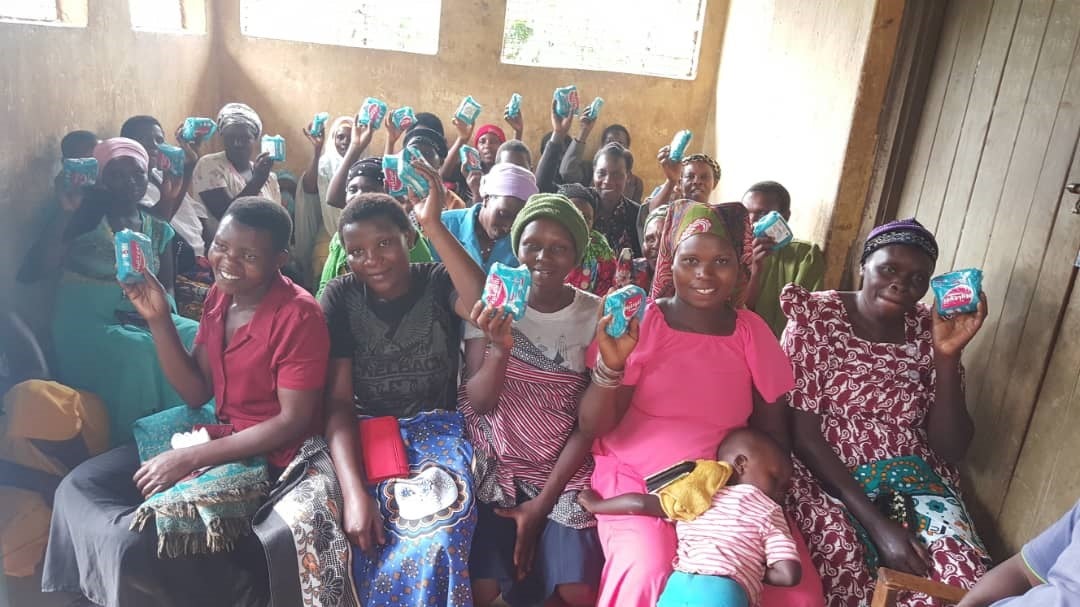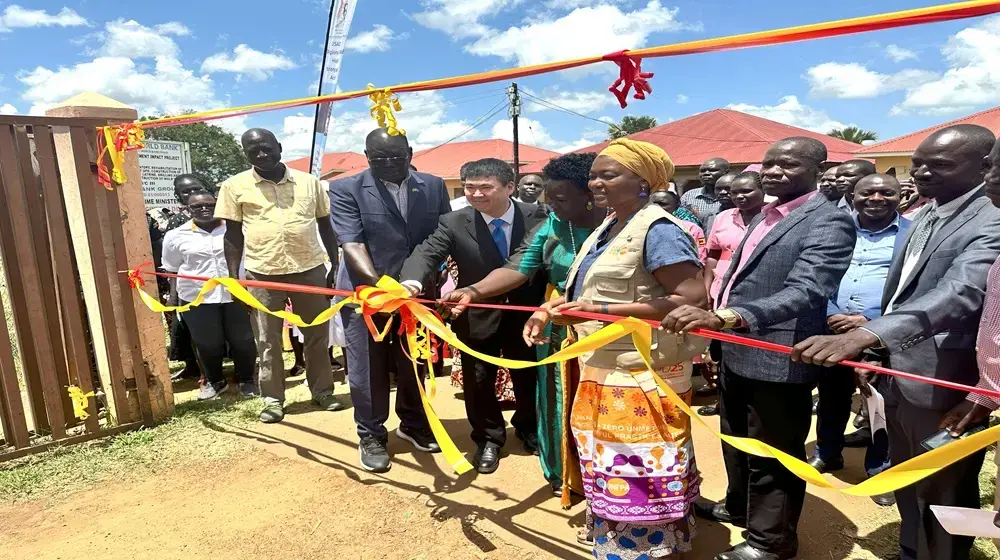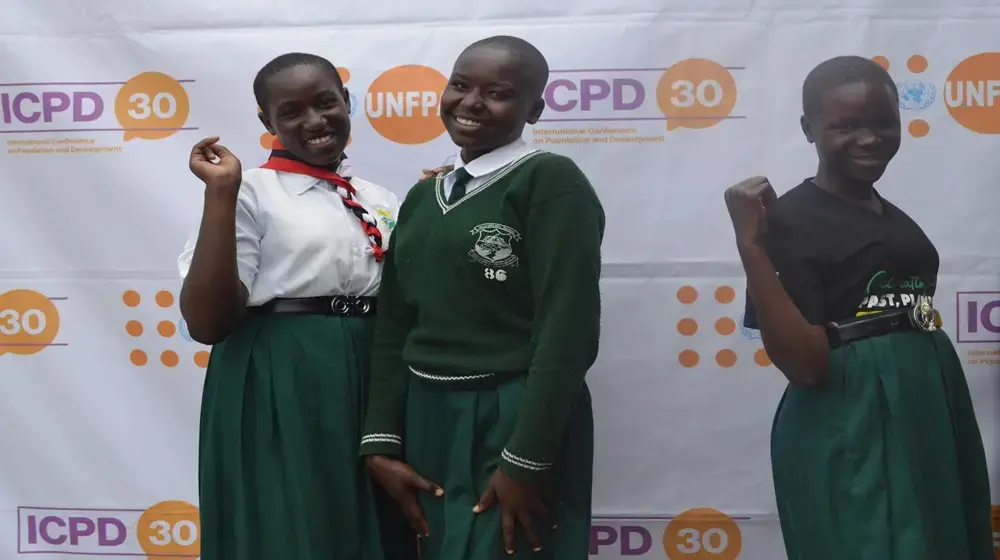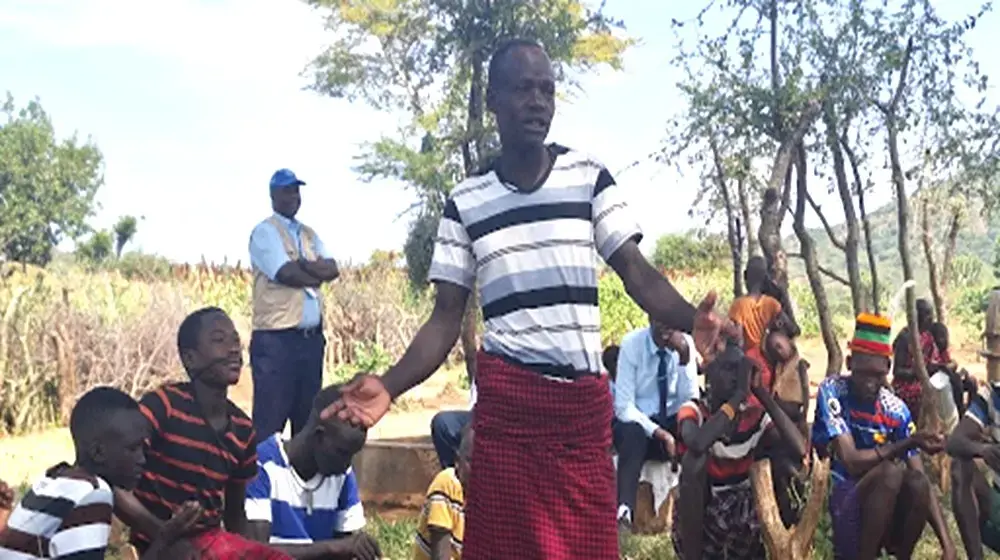UNFPA Uganda has received a USD 228,865 grant towards provision of Life-saving sexual and reproductive health and rights services to women and girls most affected by flooding and landslides in Bundibugyo, Sironko and Bududa districts in Uganda. The support from the Emergency Fund grant from UNFPA Headquarters will also provide for prevention and response to gender based violence in the affected districts.
In Uganda, significant rains during the rainy season (September 2019 to June 2020) caused continuous devastating floods, landslides and windstorms affecting mostly districts in the Western, Northern and Eastern regions of Uganda.
According to information from the office of the Prime Minister, by the end of June 2020, over 300,000 people had been affected in 13 districts and 38 lives lost in the climatic disaster. Specifically, within the districts of Bundibugyo, Sironko, and Bududa, the traumatic disaster due to floods and landslides displaced 44,992 people including 10,378 women of reproductive age, 5,594 adolescent girls and 1,351 currently pregnant women and led to the loss of 17 lives.
The disaster has forced girls and women to displacement in settlement camps without having the time to pack their essential needs. As a result, they are unable to manage their hygiene properly and lack access to basic needs such as sanitary pads, clothes and underwear that are needed to manage their menstrual periods. Besides, access to water and places to wash and dry reusable pads and clothes, or to dispose of used materials are rare and often scarce.
The COVID-19 pandemic has further led to disruption in the provision of essential services due to barriers to the supply and demand. The statistics indicate that large service disruptions in Uganda have the potential to leave 301,300 women without access to facility-based deliveries, and 941,800 fewer women receiving family planning services.

Women’s spaces. PHOTO:UNFPA/Jimmy Dombo.
A rapid assessment carried out by UNFPA in the most affected districts of Bundibugyo, Sironko, and Bududa revealed that, due to floods and landslides, health facilities were cut off due to either damaged bridges, floods, sunk in by the landslide or damaged roads. Patient loads have continued to rise in the health facilities.
Earlier this year, with CERF funding, UNFPA responded to a floods situation the districts of Sironko, Bundibugyo and Bududa. A total of 43,492 including 10,003 women of reproductive age, 5,219 adolescent girls and 1,328 pregnant women were supported.
By the end of the two months project it is projected, 3,888 displaced pregnant mothers will have utilized antenatal care, 2,764 births (by displaced women and girls) attended by skilled health personnel in targeted districts
6,668 displaced youth and adolescents receiving Adolescent Youth Friendly / Sexual and Reproductive Health and Rights services, 388 displaced women, girls, boys and men served with gender based violence services, 40 sexual violence survivors (among the displaced population) provided with post rape services (including emergency contraception, post exposure prophylaxis, psycho social counselling etc.) within 72 hours and 5,256 displaced women and adolescents (including women with disability) reached with SRHR and GBV information/services through women spaces.
The project also targets 54 health workers trained in COVID-19 infection prevention and control strategies and linkages to SRH and GBV (3 per 18 supported facilities), 18 health facilities supported in reinforcing prevention and infection control measures against COVID-19 including provision of medical supplies and equipment and 60 health workers trained on CMR, MISP, COVID-19 precautions in the three Districts.
- Compiled by Evelyn Matsamura Kiapi





